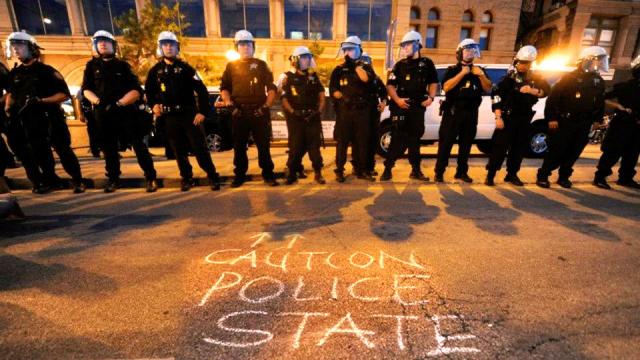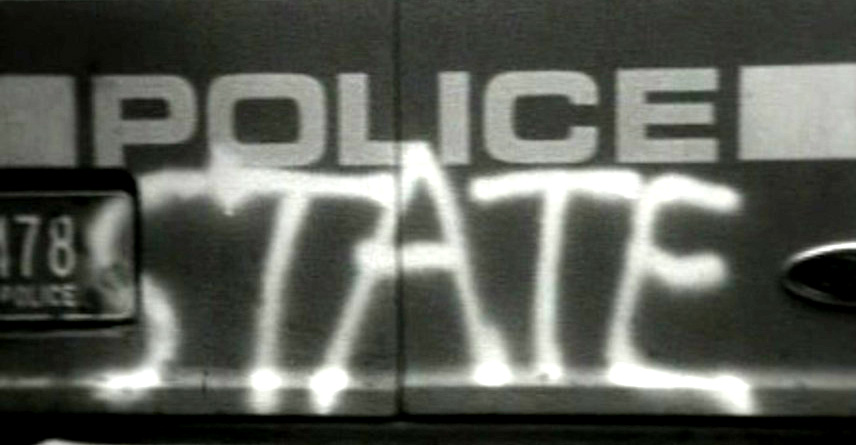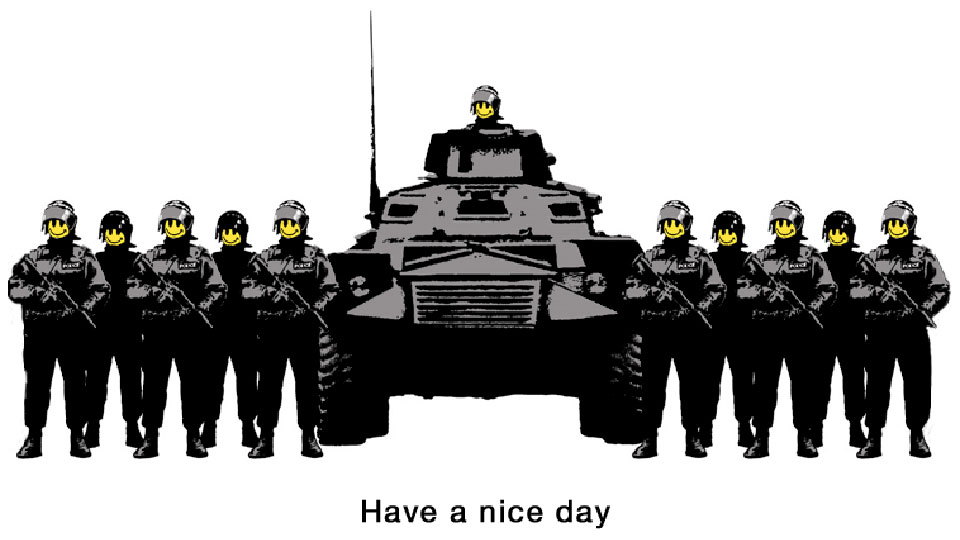
ELIZABETH, New Jersey—JaQuan LaPierre, 22, was riding a bicycle down a sidewalk Sept. 5 when he noticed a squad car pulling up beside him. It was 8:30 on a hot Thursday night at the intersection of Bond Street and Jackson Avenue here in Elizabeth, N.J. LaPierre had 10 glass vials of crack cocaine—probably what the cops were hoping to find—and he hastily swallowed them. He halted and faced the two officers who emerged from the cruiser.
“We are tired of you niggers,” he remembers one of the officers saying. “We’re tired of all this shooting and robberies and violence. And we are going to make you an example.”
He was thrown spread-eagle onto the patrol car.
“What I bein’ arrested for?” LaPierre asked.
A small crowd gathered.
“Why you harassin’ him?” someone asked the cops. “He ain’t resisting. Why you doin’ this?”
One of the officers went though LaPierre’s pockets and took his keys and $246 in cash. LaPierre kept asking why he was being arrested. He was pepper-sprayed in the face. One officer threw him onto the street, and, while he was handcuffed, the two cops kicked and beat him.
“What you beatin’ my nephew for?” his uncle, Antoine, said to the cops.
“It was so hot on my face,” LaPierre said of the pepper spray when we met a few days ago. “I was gasping for air.”
More police arrived. They pushed back onlookers, including the uncle. LaPierre was gagging and choking. He was dragged across the asphalt. By the time the beating was over, blood was coming out of his mouth. He was unconscious. The assault was caught on a camera, even though when the police saw they were being recorded they pointed a flashlight beam into the lens.
The only visible crimes LaPierre had committed was riding a bicycle on a sidewalk and failing to wear a safety helmet.
Police abuse is routine in Elizabeth, as it is in poor urban areas across the country. This incident did not make news. But it illustrated that if you are a poor person of color in the United States you know what most us are about to find out—we have no civil liberties left.
Police, who arrest some 13 million people a year, 1.6 million on drug charges—half of those for marijuana counts—carry out random searches and sweeps with no probable cause. They take DNA samples from many of those they arrest, even some eventually found to be innocent, to build a nationwide database. They confiscate cash, cars, homes and other possessions based on allegations of illegal drug activity and direct the proceeds into police budgets. And in the last three decades the United States has constructed the world’s largest prison system, populated with 2.2 million inmates.
As in most police states, cops serve as judge and jury on city streets—“a long step down the totalitarian path,” in the words that U.S. Supreme Court Justice William O. Douglas wrote in 1968 when he decried expanding police powers. And police departments are bolstered by an internal surveillance and security apparatus that has eradicated privacy and dwarfed the intrusion into personal lives by police states of the past, including East Germany.
Under a series of Supreme Court rulings we have lost the rights to protect ourselves from random searches, home invasions, warrantless wiretapping and eavesdropping and physical abuse. Police units in poor neighborhoods function as armed gangs. The pressure to meet departmental arrest quotas—the prerequisite for lavish federal aid in the “war on drugs”—results in police routinely seizing people at will and charging them with a laundry list of crimes, often without just cause.
Because many of these crimes carry long mandatory sentences it is easy to intimidate defendants into “pleading out” on lesser offenses. The police and the defendants know that the collapsed court system, in which the poor get only a few minutes with a public attorney, means there is little chance the abused can challenge the system. And there is also a large pool of willing informants who, to reduce their own sentences, will tell a court anything demanded of them by the police.
The tyranny of law enforcement in poor communities is a window into our emerging police state. These thuggish tactics are now being used against activists and dissidents. And as the nation unravels, as social unrest spreads, the naked face of police repression will become commonplace. Totalitarian systems always seek license to engage in this kind of behavior by first targeting a demonized minority. Such systems demand that the police, to combat the “lawlessness” of the demonized minority, be, in essence, emancipated from the constraints of the law. The unrestricted and arbitrary subjugation of one despised group, stripped of equality before the law, conditions the police to employ these tactics against the wider society.
“Laws that are not equal for all revert to rights and privileges, something contradictory to the very nature of nation-states,” Hannah Arendt wrote in “The Origins of Totalitarianism.” “The clearer the proof of their inability to treat stateless people as legal persons and the greater the extension of arbitrary rule by police decree, the more difficult it is for states to resist the temptation to deprive all citizens of legal status and rule them with an omnipotent police.”
Once you are branded a felon, as Michelle Alexander points out in her book “The New Jim Crow,” you are “barred from public housing by law, discriminated against by private landlords, ineligible for food stamps, forced to ‘check the box’ indicating a felony conviction on employment applications for nearly every job, and denied licenses for a wide range of professions.” And this is for people who might have had only a small quantity of drugs, perhaps a few ounces of marijuana. There are 6 million people who because of felony convictions are permanently shut out from mainstream society. They are second-class citizens, outcasts. The war on drugs—aided by hundreds of millions of federal dollars along with federal donations of high-velocity weapons, helicopters, command vehicles and SWAT team military training—has become the template for future social control. Poor people of color know the truth. They were the first victims. The rest of us are about to find it out.
LaPierre was taken unconscious to a hospital. He woke up with both hands handcuffed to a gurney. He was vomiting blood. Two of the glass vials, each worth $10 on the street, came up with his vomit. The police, ecstatic, had the drugs they had hoped to find when they stopped him.
“It’s over for you,” he heard an officer say. “You’re goin’ down.”
“You spittin’ at an officer?” one of the cops said laughingly. “Your boys are not here to protect you now, are they?”
LaPierre could not see. He heard the officers discussing the charges and making sure the official story was coherent. One officer, inexplicably, yanked out some of LaPierre’s hair, braided in cornrows, and stuffed the hair into the handcuffed man’s pants “on my private parts.”
“Trying to disarm an officer,” he heard one say as they tallied the charges. “Possession. Resisting arrest. Starting a riot.” By the time he was transferred out of the hospital five days later there would be nine charges and a $35,000 bail.
“During the last couple of days the police have been telling people in the neighborhood that if they go to court to testify about the beating of JaQuan they will be arrested and go to jail too,” Myrtice Bell, LaPierre’s grandmother, told me.
LaPierre, who was on probation for allegedly resisting arrest during another routine stop, a charge he says was false, and who has a pending charge of being in a vehicle with other men in which an illegal weapon was found by police, appears destined to be swallowed into the vast prison system. He will become, if he is railroaded into prison, one more person among the more than 2 million behind bars in the U.S. His experience, and the experience of others in poverty-stricken communities, should terrify us. Our failure to defend the rights of the poor in the name of law and order, our demonization of young black men, our acceptance that they can be stripped of the power to protect themselves from police abuse or find equality before the law, mean that their fate will soon become ours.
3 WAYS TO SHOW YOUR SUPPORT
- Log in to post comments

















